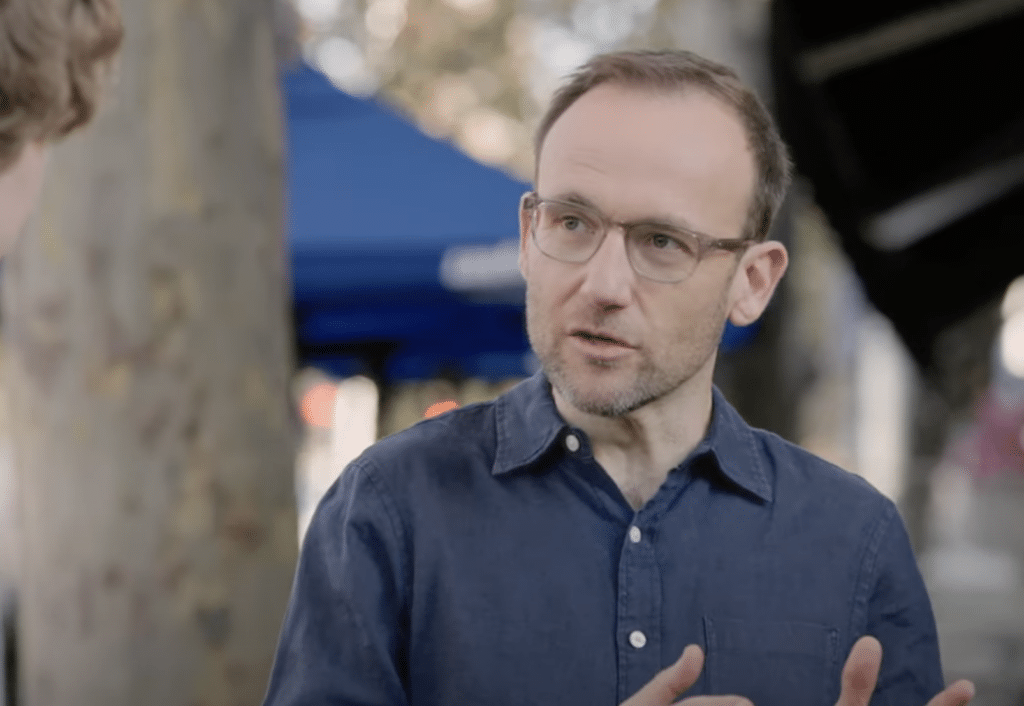The Greens have announced a new policy to provide women with free access to contraception. It’s one of a number of new policies for women the party has announced ahead of next year’s federal election, where a minority government result is increasingly likely.
Australians are expected to vote in a federal election at some point in the new year, and polls are indicating the Albanese Labor government is falling short of securing a majority government in the next term.
On Tuesday, Greens leader Adam Bandt suggested on ABC’s Afternoon Briefing that his party would seek to form an agreement with the Labor party, in the event of a hung parliament following the federal election, to form a “stable, effective and progressive” parliament.
“I think working that out in advance, working out what the benefits will actually be for people and knowing how then the next three years would map out … that is probably the priority,” Bandt said.
The Greens new policy on contraception comes after the minor party published their $15 billion plan to address gender-based violence in Australia last week.
So with a minority government on the cards, how likely would it be for these policies, which overwhelmingly impact women, to be implemented? Here’s what you need to know.
What are the policies?
Accessing contraception in Australia can be difficult and a financial burden for many people. But under the Greens’ policy, the pill, the IUD and other forms of contraceptives could be subsidised, or even cost-free.
The $250 million per year plan would make TGA approved non-PBS contraceptives free and subsidise the non-hormonal copper IUD. The Greens would also introduce a new Medicare item for contraceptive counselling, including training for all prescribers.
Senator Larissa Waters, the Greens leader in the Senate and the party’s spokesperson on women, said the Greens’ commitment to this policy will make a difference not only on the cost-of-living crisis, but for gender equality overall.
“There are 4.8 million women in Australia using contraceptives, and making them free would save women hundreds of dollars a year and empower women to make decisions about bodily autonomy despite a difficult financial climate,” Senator Waters said.
“Our policy would make sure people can access the contraception that works for them, regardless of their bank balance and whether they live in the city, the country, or are studying on a visa.”
There are already several countries in Europe that provide free contraceptives, Senator Waters said, including France, the UK and Scandinavian nations. And with reproductive rights under threat – including in Queensland following significant debate during the state election – the policy is needed now more than ever.
“The Greens are committed to empowering individuals to make informed decisions about their reproductive health without further financial strain,” Senator Waters said.
On top of their policy on contraceptives, the Greens also unveiled a $15 billion plan to address the growing problem of gender-based violence in Australia.
According to Destroy the Joint’s Counting Dead Women, 71 women have been killed by violence in 2024. This has significantly surpassed last year’s total of women killed, which was 63, with four weeks of the year still to come.
The Greens announced a comprehensive policy to address the growth of violence, including an increase in funding for all programs under the government’s ten-year National Plan to End Violence Against Women and Children 2022-2032 to $12 billion over 12 years.
Millions of dollars will also go into research, front line services and an official national real-time toll of women killed by violence. Under the policy, the Greens would also increase the Escaping Violence Payment from $5,000 to up to $10,000, and remove the requirement for a portion of this payment to be provided in vouchers.
“Every week in Australia, women and children suffer at the hands of men and this year more than one woman has been killed every week in this country,” Senator Waters said.
“The statistics are shocking and unacceptable. Successive federal governments have failed to fully fund frontline services, and too many victim-survivors are left to fend for themselves.
“The Greens are committed to a bold, survivor-centred approach ensuring that no-one who seeks help fleeing violence is turned away, with a $15 billion package to provide long-term support and funding to help victim-survivors escape violence and begin their recovery.”
Will we see this in action?
Next year’s federal election is expected to take place at least before May 17, and there is speculation Prime Minister Albanese could call a much earlier election date.
According to latest polling from Newspoll, the Opposition primary vote rose by two percentage points to 40 per cent, with Labor’s primary vote at 33 per cent, suggesting Labor might not secure a majority government.
In response, the Greens have suggested they would back Labor for a minority government.
“We now have a situation where more and more people are voting for (candidates) other than the two major parties,” Greens leader Adam Bandt said on ABC’s Afternoon Briefing on Tuesday afternoon.
“I think that then means we have a more diverse parliament, but I think then that puts an obligation on those of us who are in there to then work together.”
In the last parliamentary sitting week, the Greens backed more than 40 bills to push legislation through parliament before the end of the year, on the condition Labor agree to several demands from the Greens, including additional funding for household electrification and a block on using Future Made money for fossil fuel projects.
Labor’s Katy Gallagher, Minister for Women and Minister for Finance, responded to Bandt’s comments by saying Bandt was “getting ahead of himself” and Labor would fight to win government on its own.
“We that’s what brings stability and certainty to the parliament,” Minister Gallagher said.
“We are the only party that does that … [We’ll] continue to ignore some of this commentary from the side.”


